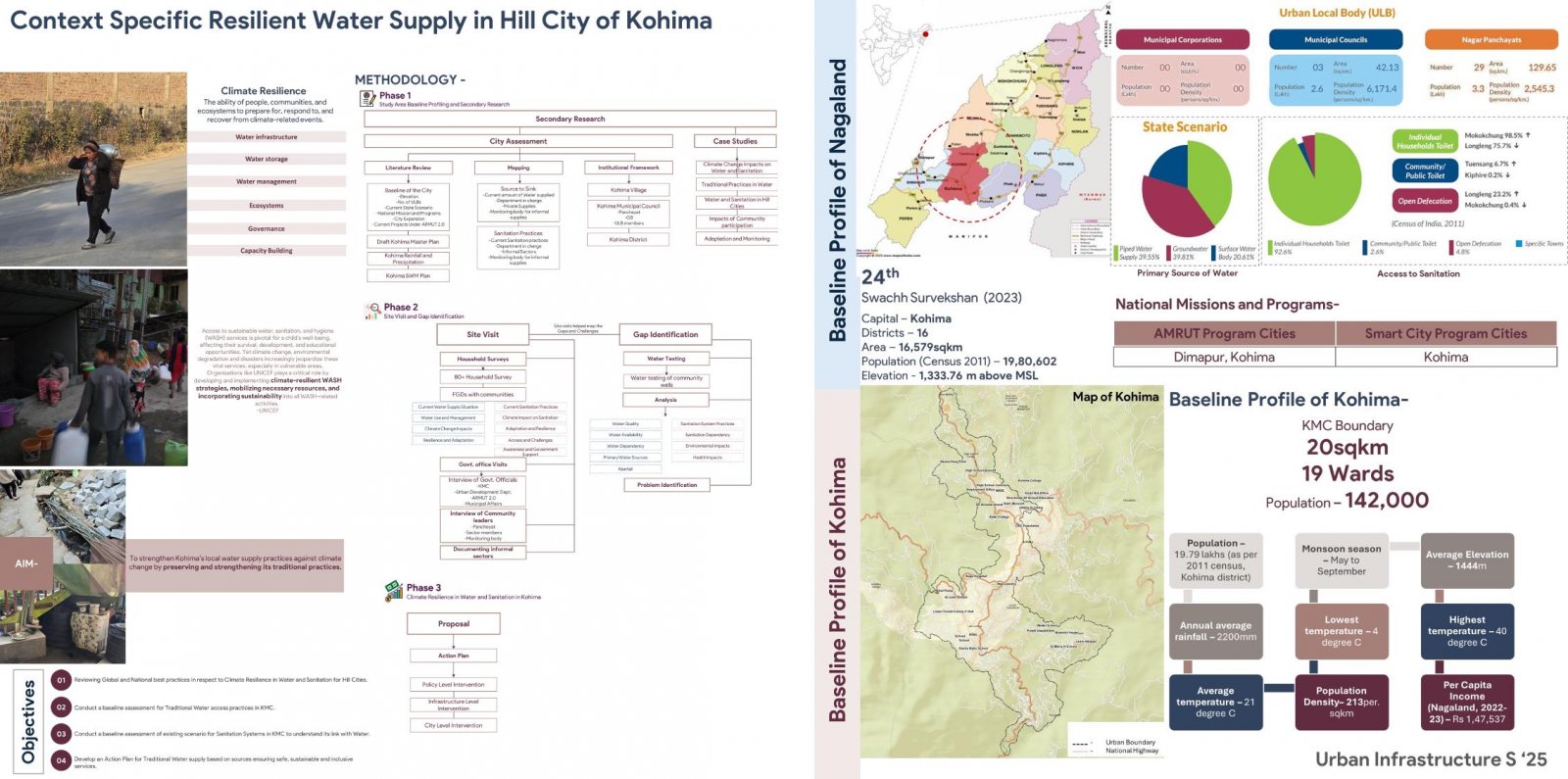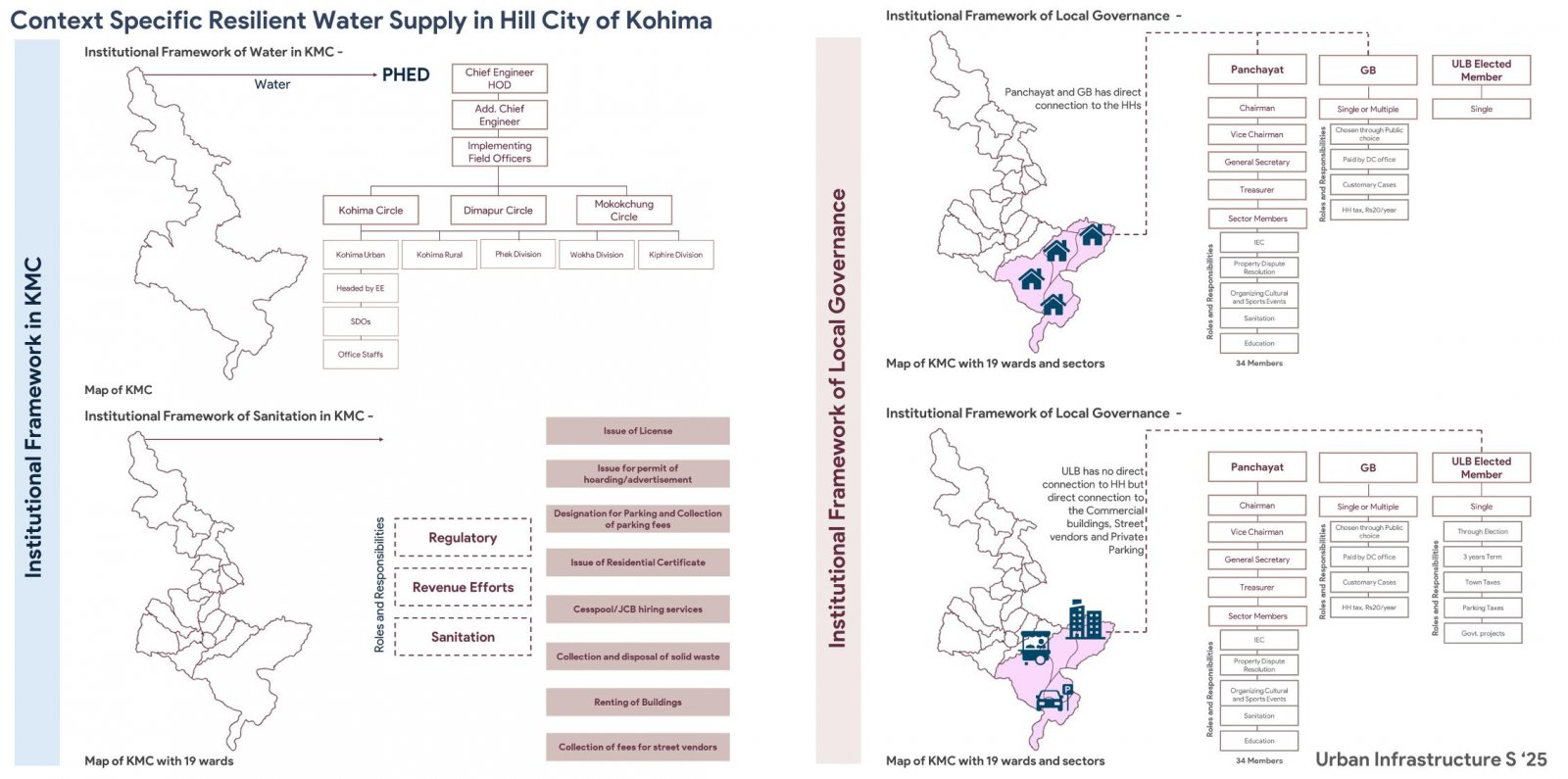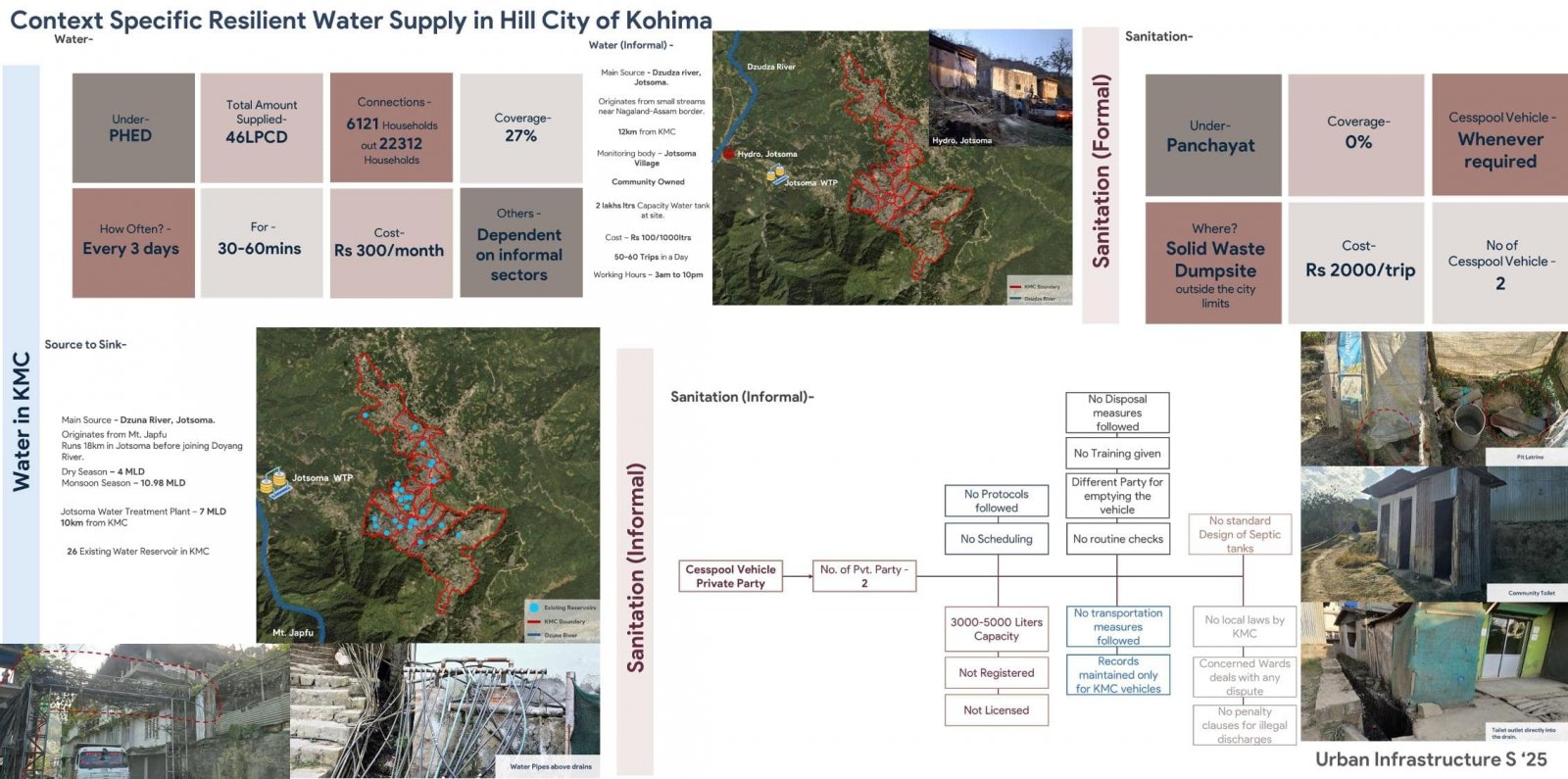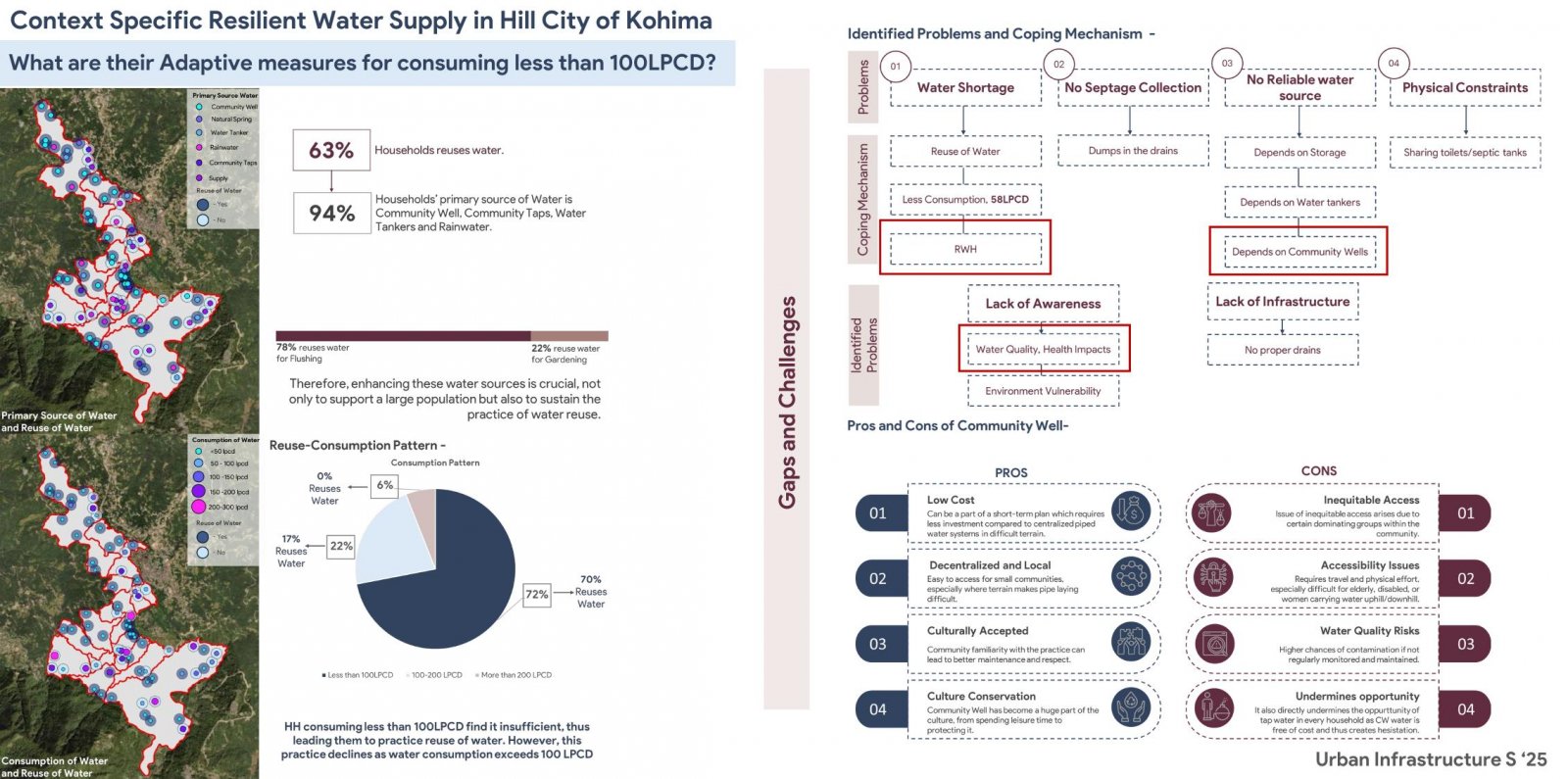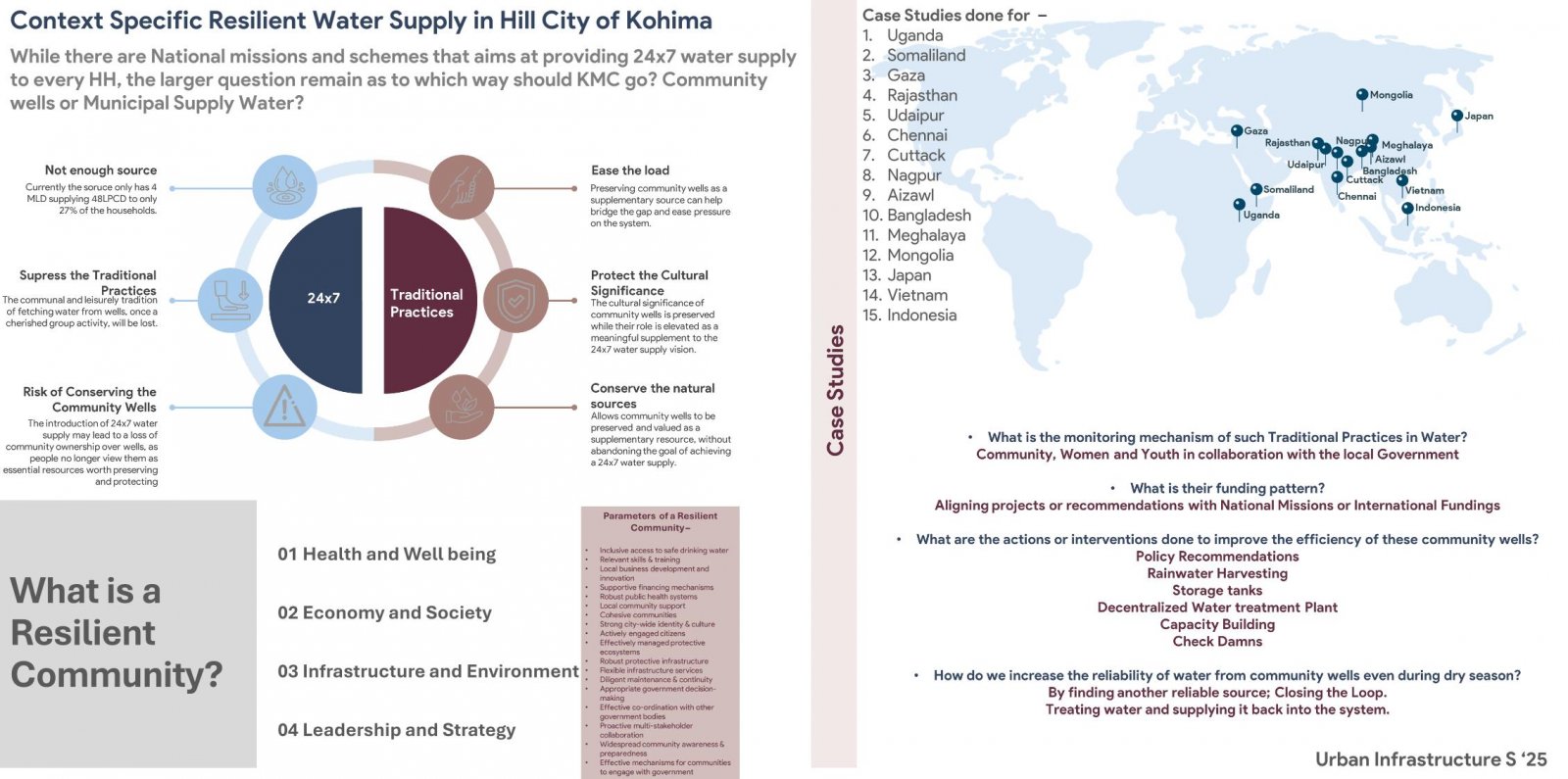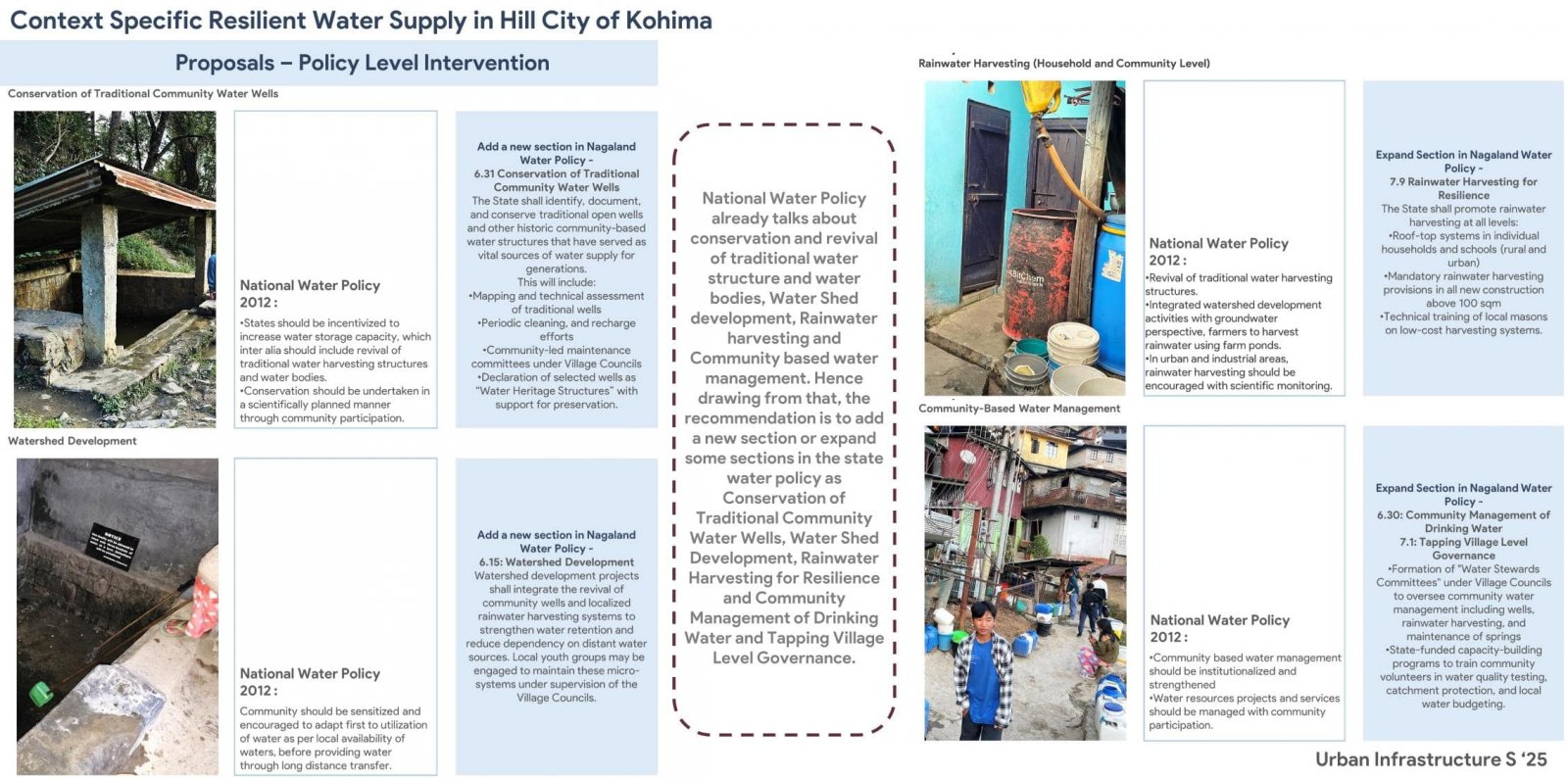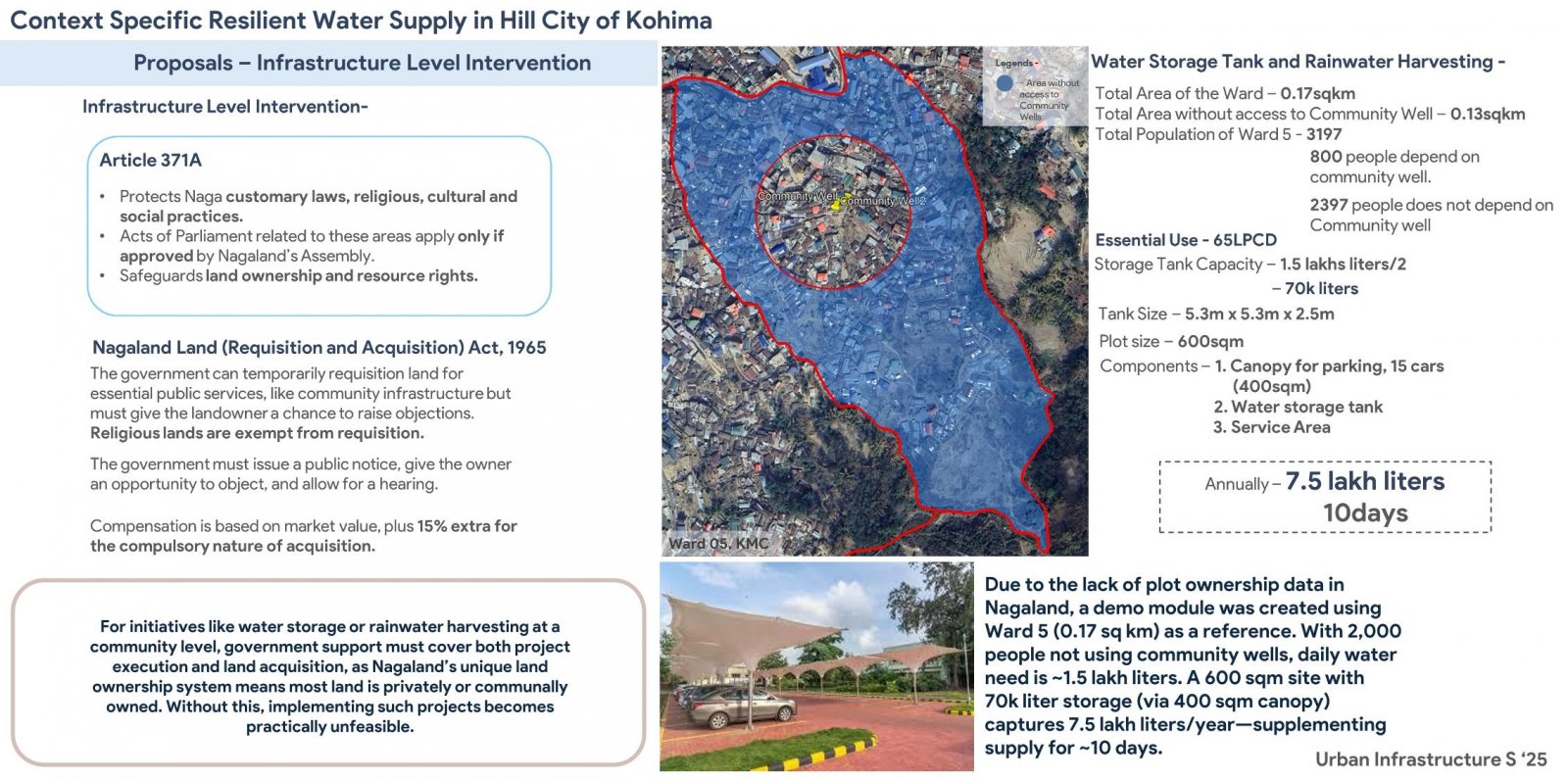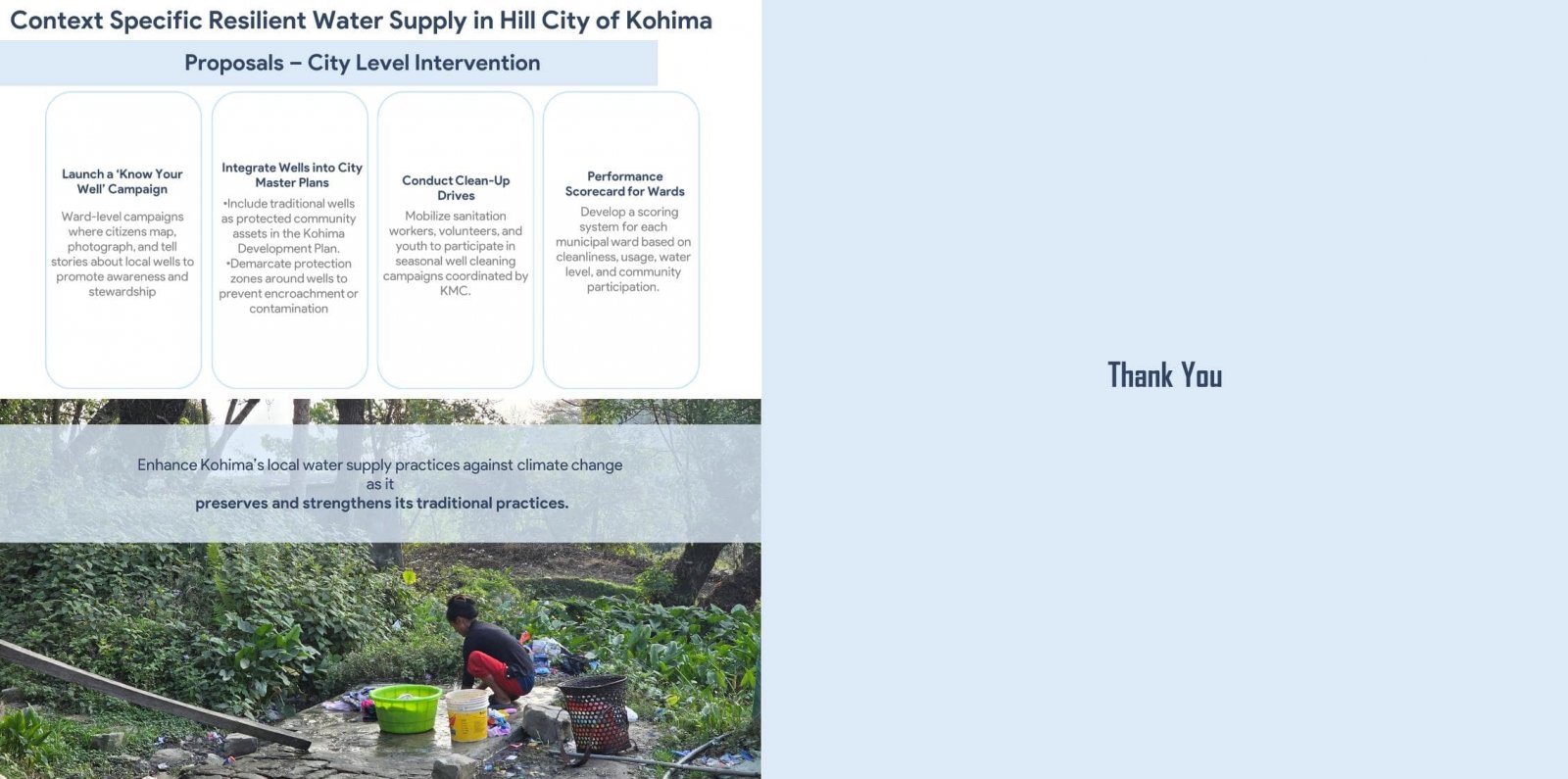Your browser is out-of-date!
For a richer surfing experience on our website, please update your browser. Update my browser now!
For a richer surfing experience on our website, please update your browser. Update my browser now!
This study explores climate-resilient water supply and sanitation systems in Kohima, Nagaland, focusing on traditional community wells and decentralized infrastructure. Despite efforts under national missions like Jal Jeevan Mission, only 27% of households in Kohima have access to municipal piped water, leading to widespread reliance on informal sources such as community wells, rainwater harvesting, and water tankers. Through household surveys, stakeholder interviews and water quality assessments, the project identifies critical infrastructure gaps and emphasizes the importance of preserving traditional water sources amidst rapid urbanization. The project proposes a multi-tiered action plan—including policy reform, infrastructure upgrades, and community engagement—to integrate indigenous systems with formal planning. This approach aims to enhance water security, equity, and sustainability while fostering local ownership in the context of climate change and urban growth.
